African American literature is the corpus of fictional, dramatic, and poetic works produced by American writers of African descent. To most readers, it’s associated with the boldly experimental output of the Harlem Renaissance — the jazz-inflected, Manhattan-centered artistic movement in the early 20th century that saw Black authors like Zora Neale Hurston and Langston Hughes win mainstream acclaim.
As groundbreaking as the Harlem Renaissance was, though, African American literature goes far beyond this one watershed moment. The Black literary tradition in the US has deep historical roots, extending well into the antebellum period. Its early works include verse written by enslaved poets from the colonial era, as well as autobiographical “slave narratives” recounting the experiences of people under bondage. And of course, the history of African American literature is still actively being written: in the past few years, Black American writers have conducted fascinating experiments with form, turned YA books into engines of social change, and transformed the landscape of speculative fiction.
Want to dive into this rich literary tradition? In this post, we’ll take you through 30 essential works from the past hundred years, from classic novels ripe for rediscovery to contemporary collections on the cutting edge of literary fiction. The books we’ve selected don’t just represent the finest work by African American writers — each of them engages deeply with aspects of the Black American experience, from the institutional shadows cast by slavery to the failures of a criminal justice system that discriminates based on race.
These books aren’t primary sources, artifacts framing historical trauma for a reader’s edification. They’re works of art. Taken together, they experiment boldly with literary convention and treat challenging material with grace and poignancy — not to mention irony and wit. Learn from them, but be sure to enjoy them as well, luxuriating in their elegant language, daring structure, and evocative characterization.
Without further ado, check out these 30 must-read African American literature books.
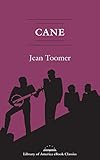
1. Cane by Jean Toomer (1923)
The versatile, lyrical writer Jean Toomer produced only one novel during his long and varied career, which ranged from poetry to essays about his Quaker faith. Cane, hailed as an “astonishingly brilliant” debut, shows off his range by mixing prose, verse, and drama to tell the intertwining stories of Black women grappling with the industrialization of the South. The result — now hailed as a modernist classic — reads less like a conventional novel than an operatic cycle, more concerned with the music of language than the intricacies of plot.

2. Quicksand by Nella Larsen (1928)
Born to a Black father who left and a Danish mother who died Helga Crane has always felt alone. Whether she’s in Copenhagen or the American South, teaching at an all-Black boarding school or listening to a white preacher’s sermon, she’s never quite found a place where she belonged. In Quicksand, Harlem Renaissance writer Nella Larsen — herself the daughter of a Danish woman and Afro-Caribbean man — mines personal experience to craft an intimate portrait of Black biracial womanhood in the 1920s.

3. Plum Bun by Jessie Redmon Fauset (1929)
Another masterpiece from an oft-neglected Harlem Renaissance great, Plum Bun is subtitled “A Novel Without a Moral”. As a young, African-American woman growing up in Philadelphia, Angela Murray realizes she can pass for white. Heartbroken by her parents’ death and sickened by the racism she’s suffered in Philly, Angela decides to seek a life free from prejudice. Soon enough, she’s moved to New York and is masquerading as a white woman among the city’s avant-garde. But Angela’s new freedom comes at a cost: she’s had to leave her dark-skinned sister, Virginia, behind.

4. Their Eyes Were Watching God by Zora Neale Hurston (1937)
Rarely does a book speak so broadly across cultural circumstances, and yet so personally to each reader who finds it. Hurston’s masterpiece, Their Eyes Were Watching God, is one such book — it has simultaneously found a home in the ranks of American classics, feminist classics, and African American literary classics (specifically, from the height of the Harlem Renaissance). Following the life of Janie Crawford from ingenue to independent woman, this wildly influential book has come to touch many lives.
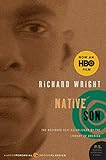
5. Native Son by Richard Wright (1940)
Pre-dating the Black Lives Matter movement by around eighty years, Native Son is nonetheless an important key to understanding the systemic impact that racism has on Black lives. Set in the impoverished regions of 1930s Chicago, this novel follows Bigger Thomas, an underprivileged young man who falls into a life of crime. While the book does not condone Bigger’s actions, it does provide an important and sympathetic look at how poor Black youth, in particular, are shaped by their material circumstances.

6. Invisible Man by Ralph Ellison (1952)
What does it mean to be invisible? In this breathtakingly experimental novel, Ellison explores the concept through an aptly unnamed narrator. Following the protagonist from his high school years through his time as the spokesman for “the Brotherhood,” and finally to his retreat from all of society, Invisible Man is a thoughtful and brutally honest novel that will make you look at society with fresh eyes — hopefully, eyes more attuned to seeing those who would otherwise go unnoticed.
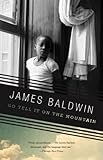
7. Go Tell It On The Mountain by James Baldwin (1953)
Baldwin’s semi-autobiographical novel tells the story of John Grimes, a teenager in 1930s Harlem. Written in lyrical prose best described as Biblical poetry, it’s only fitting that this book deals heavily with Grimes’s (and, by extension, Baldwin’s) ever-shifting relationship with his faith. As the stepson of minister and a boy discovering his own homosexuality, the character definitely has a lot to process. Go Tell It on The Mountain takes us expertly through all the feelings that follow, in a way that will resonate with readers regardless of their faith or identity.

8. The Narrows by Ann Petry (1953)
Named for the African-American neighborhood in a segregated Connecticut town, The Narrows kicks off with a young white woman being sexually harassed. A twenty-something Black man named Link Williams comes to her rescue, and soon enough, the two are entangled in a passionate affair. But Link’s new beloved isn’t who she says she is — in fact, she’s the wife of one of the wealthiest white men in town.

9. Babel-17 by Samuel R. Delaney (1967)
Instead of the oft-used physics of starflight or the biology of cloning, this foundational text in African-American sci-fi takes inspiration from the science of linguistics. In fact, Babel-17 is named for the language at the center of the book: a strange, pronoun-free tongue weaponized by one side in a far-future war. If you fight for the opposite forces, learning Babel-17 will change your very worldview — turning you into a traitor in the process.

10. Roots: The Saga of an American Family by Alex Haley (1976)
You may be familiar with this story through the historic 1977 miniseries or the more recent History Channel adaptation, but Roots: The Saga of An American Family was a book before it ever reached viewers on TV. Based directly off the author’s own lineage, it’s easy to see why this powerful novel has been adapted and retold time and time again. Sprawling across multiple generations, Roots is a must-read in the current era, and no doubt will remain one for many years to come.

11. Kindred by Octavia E. Butler (1979)
Octavia Butler's iconic novel is not only a staple of African American literature, but a sci-fi classic in its own right. Dazzling, heartbreaking, and all too relatable, it tells the story of Dana, a writer who ends up jumping through time between her life in 1976 California, and a pre-Civil War Maryland plantation. What follows is the haunting story of a woman literally trying to navigate two worlds, while being fully aware of the far-reaching legacy of the antebellum South she finds herself in.

12. The Color Purple by Alice Walker (1982)
In this epistolary novel, we meet Cecile and Nettie — sisters living under the so-called “care” of an abusive father. Cecile starts writing letters to God to deal with her horrific situation, and the novel grows from there. We’ll be honest, this is not always an easy read to get through, as Walker pulls no punches when it comes to showing the world the truth of domestic and sexual abuse. Still, there’s a reason this novel won the Pulitzer prize (and, in the process, made Walker the first Black woman to receive that honor).

13. The Women of Brewster Place by Gloria Naylor (1982)
Gloria Naylor won the National Book Award for this keenly observed debut novel. The Women of Brewster Place tells the story of seven Black women living in poverty, inside a rundown building that’s embattled by city politics and perpetually threatening to fall apart. Thanks to Naylor’s vivid, unsentimental prose and exacting eye for detail, every character comes to life with all the warmth of flesh and blood.

14. Beloved by Toni Morrison (1987)
Inspired by the real-life story of a formerly enslaved woman, this Pulitzer prize-winning classic has been a staple of African American literature since it was first published. Following the life of Sethe, a woman who escaped enslavement eighteen years earlier, Beloved is a powerful examination of motherhood, humanity, and the horrors that follow when that humanity is stripped away from people. Be aware that this book does contain unflinching and graphic depictions of abuse. Still, Beloved is a piece of history that shouldn’t be glossed over, and it handles this difficult subject matter with expert care.

15. Corregidora by Gayl Jones (1987)
According to a feature in The Atlantic, Gayl Jones is the “Best American Novelist Whose Name You May Not Know”. Her contemporaries, among them Toni Morrison and John Updike, praised her haunting depictions of slavery’s enduring psychological consequences. If you’d like to read this neglected genius for yourself, start with Corregidora, her stylish and ambitious magnum opus. This challenging novel centers on Ursa Corregidora, a blues singer whose enslaved great-grandmother was raped by a Portuguese slaveholder — the man who gave Ursa his surname and whose legacy continues to haunt her generations later.

16. Devil in a Blue Dress by Walter Mosley (1990)
The first book of the Easy Rawlins mystery series, Devil in a Blue Dress introduces us to Easy, a recently fired war vet now nursing his troubles at a friend’s bar. When a man who walks in tasks him with the job of finding a blonde bombshell known to frequent Black jazz clubs, Easy’s life takes another turn. A thrilling PI story in its own right, this book has also made solid contributions to the canon of African American-penned mystery novels, bringing an authentic voice and unique characterizations.

Those Bones Are Not My Child: A Novel (Vintage Contemporaries) by Toni Cade Bambara
Edited by Toni Morrison, this searing, nearly 700-page novel was published posthumously. Those Bones Are Not My Child starts off in the summer of 1980, when Atlantan mother Zala Spencer finds her tween son missing. Twelve-year-old Sonny, as Zala and her husband Nathaniel quickly find, isn’t the only Black child to disappear in recent times — but the city doesn’t seem to care. Brushed off by the authorities, the Spencers find themselves with no choice but to search for their son on their own.

18. Tumbling by Diane McKinney-Whetstone (1996)
This stylistically dazzling debut cemented Diane McKinney-Whetstone’s place among the finest fiction writers of her generation. In Tumbling, we’re introduced to Noon and Herbie, a preacher’s daughter and a former jazz musician who met and married in 1940s Philadelphia. But even though they love each other and they’ve been together for years, their relationship remains unconsummated: Noon, the survivor of a childhood assault, is still traumatized by the idea of sex. Still, the two remain devoted to each other. Then Herbie’s mistress, Ethel, starts leaving children on their doorstep, shaking up the delicate equilibrium in their marriage.

19. The Known World by Edward P. Jones (2004)
This daring and sophisticated historical fiction novel won Edward P. Jones the Pulitzer Prize. In antebellum Virginia, freedman Henry Townsend finds himself mentored by his own slaveholder, the most powerful landowner in Manchester County. Through William Robbins’s support, Henry becomes the owner of a sprawling estate — fifty acres worked by 33 slaves of his own. Narrated by an omniscient observer who never voices judgment, The Known World isn’t an easy read. But it does offer a searing meditation on power, complicity, and the impossibility of honor under an evil and all-reaching institution.

20. Monster by Walter Dean Myers (1999)
This wildly experimental novel is an emotional rollercoaster in all the best ways. Following the life of 16-year-old Steve Harmon, Monster opens with his diary entries as he awaits trial for murder. When Steve decides that his life story would make a good movie, the novel transitions into a mix of diary entries and screenplay pages, an eclectic narrative that somehow only manages to strengthen the story’s themes of racial identity, peer pressure, and the nature of truth. Monster is an experience not to be missed, with a narrator that readers won’t soon forget.
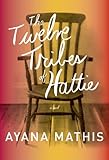
21. The Twelve Tribes of Hattie by Ayana Mathis (2012)
The gorgeous and harrowing debut will linger in your mind long after you absorb the final sentence. It’s 1923, and Hattie Shepherd has just left Georgia for Pennsylvania. She, along with her mother and sisters, are among the six million African Americans to participate in the Great Migration, which saw them leave their rural Southern hometowns for cities to the north and west. By seventeen, Hattie is married to a man who gives her many children, but little love. The Twelve Tribes of Hattie is a devastating family saga that centers on the unbreakable spirit of its title character through her evolution from hopeful teen to matriarch.

22. Brown Girl Dreaming by Jacqueline Woodson (2014)
In this autobiographical novel-in-verse, Woodson brings readers deep into her life and heart. Tracking her experiences from her early years in rural Ohio, to her adolescence in Georgia, and finally up to her years in New York, Brown Girl Dreaming serenades readers with the beauty of Woodson’s life, even when it delves into the depths of racism and the Civil Rights movement. This book is truly a dream — a testament to the human spirit.

23. Fire Shut Up in My Bones by Charles M. Blow (2014)
In Fire Shut Up in My Bones, hailed by the A.V. Club as the “memoir of the year,” New York Times journalist Charles M. Blow recounts his experience as a bisexual, Black survivor of sexual abuse. But this book doesn’t just tell Blow’s story — it starts with his mother, who grew up in a segregated southern town, and whose unbending sense of honor shaped her son. Whether he’s reconstructing his mother’s experience or excavating his own, Blow writes with unflinching exactitude and poise.

24. The Fifth Season by N.K. Jemisin (2015)
Psychologist-turned-novelist N.K. Jemisin is arguably science fiction’s greatest living writer. The Fifth Season, which opens her magisterial Broken Earth trilogy, made her the first African American to win a Hugo Award for Best Novel. This elegant science fantasy takes place on a supercontinent called the Stillness, ironically wracked by devastating seismic activity. People with the ability to control and rechannel the ground’s tremors, known as orogenes, help keep the ground together. At the same time, their dangerous powers make them the target of hatred and fear.
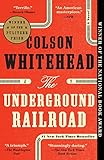
25. The Underground Railroad by Colson Whitehead (2016)
While the real underground railroad had nothing to do with trains, this risky gateway to freedom is reimagined in Whitehead’s The Underground Railroad. Following two enslaved people named Cora and Caesar, this wildly imaginative novel takes readers on a journey along a literal railway beneath the soil of the Southern states. Featuring unusual — but familiar versions — of the world you know, this story will enchant just as much as it educates.

26. Homegoing by Yaa Gyasi (2016)
Homegoing is a story of legacies. It follows two sisters who have never met: Effia, who marries a British governor in charge of Cape Coast Castle, and Esi, held captive in the dungeons of the very same castle. Over the course of the novel, we witness the very divergent lives of not only the sisters themselves, but generations of their descendants. This ambitious novel spans decades and oceans, but never once loses the heart that binds it all together.

27. The Hate U Give by Angie Thomas (2017)
Born from the Black Lives Matter movement, The Hate U Give tells the all-too-recognizable story of Starr, a young woman who sees her best friend being shot by the police. Now Starr has to bear witness firsthand as he becomes a national headline. Stuck in the middle of the public discourse, she faces a difficult choice. Should she use her voice and speak up for her friend and those like him, at the risk of being swept up in the same frenzy that stole his life? Or should she keep silent and live with the knowledge festering inside her?

28. Sing, Unburied, Sing by Jesmyn Ward (2017)
Half ghost story and half travel narrative, Sing, Unburied, Sing follows Jojo, a boy on the cusp of manhood. Ward’s magnificent, lyrical writing brings this breathtaking story to life. After the events of his thirteenth birthday, Jojo is packed into the car with his family and taken on a journey to visit his long-absent white father upon his release from prison. Deeply emotional, this story of fathers, father-figures, and sons will haunt readers’ minds like the ghost that flits between the chapters.

29. An Unkindness of Ghosts by Rivers Solomon (2017)
Botanist Aster Gray lives aboard the HSS Matilda. She and her shipmates are the last remaining humans, and the generation ship that shelters them will bring them to the Promised Land. But life aboard Matilda is as cruel as the chill of space. Not only is the neurodivergent Aster derided as a “freak,” she and her fellow dark-skinned sharecroppers are trapped on the ship’s lower decks, brutalized by overseers from the world above. But then Matilda’s sovereign dies, and an autopsy reveals a surprising link to the suicide of Aster’s mother, a mystery from twenty-five years ago. This wildly original debut uses established sci-fi conceits to critique institutional racism.

30. A Lucky Man by Jamel Brinkley (2018)
In this powerful, National Book Award-nominated collection, rising lit fic phenom Jamel Brinkley explores Black masculinity through nine short stories. Each story turns upon an ordinary enough scene: a college party, a martial arts tournament, a summertime trip to the pool. But Brinkley’s measured prose and subtle eye for detail turn these depictions of routine sociality into literary revelations. His real gift is for characterization: the men in his stories are fully formed human beings — vulnerable and flawed, capable of tenderness as well as carelessness.
***
Want more classic literature from diverse authors? Check out our roundup of the best books of all time.